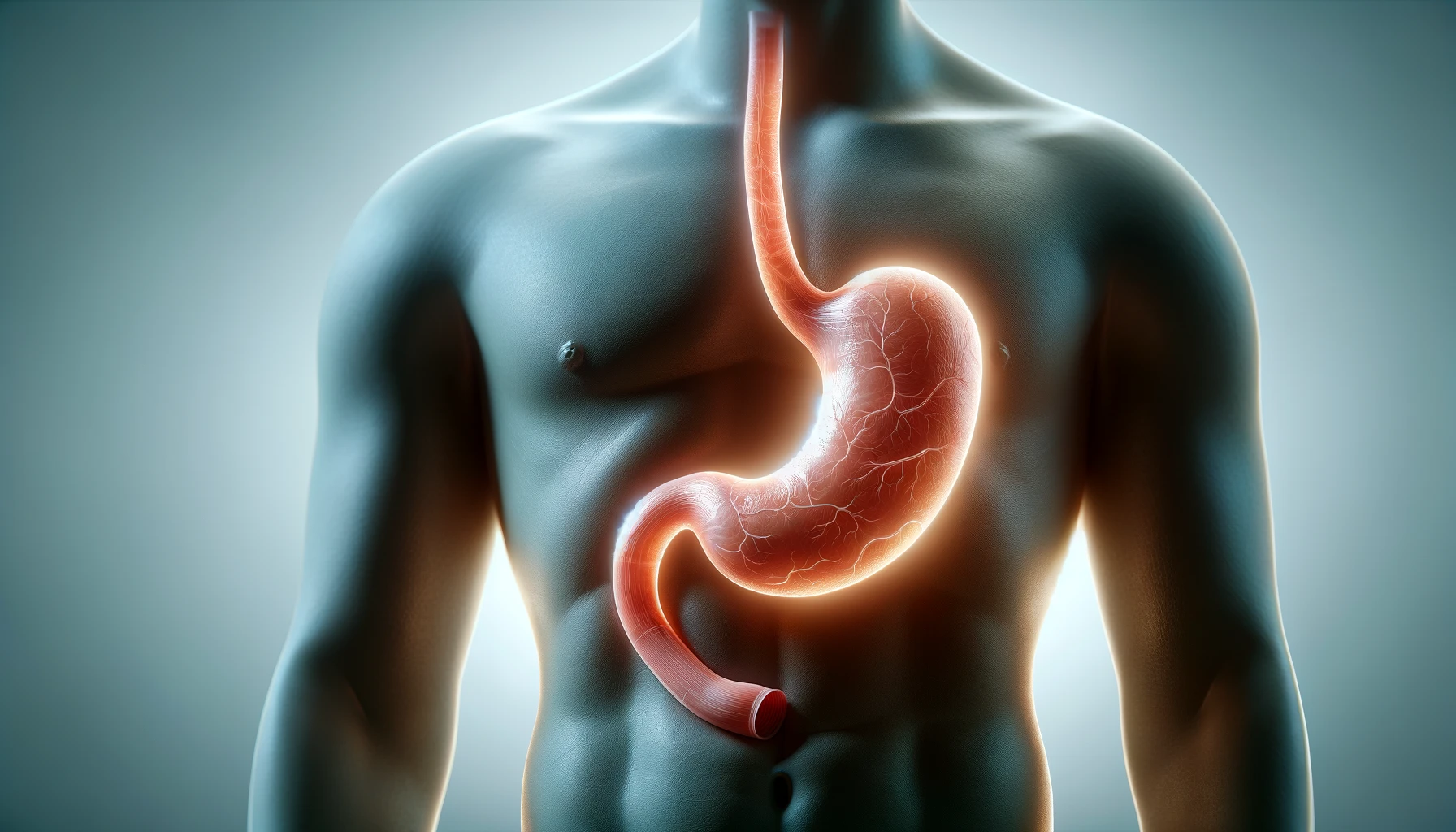Ever wondered how your body tackles the big job of breaking down the foods you love? It all starts with mechanical digestion, a crucial first step in the complex journey of turning your meals into energy. This process is where physical action, like chewing, comes into play, setting the stage for nutrients to be absorbed and used by your body.
In this text, you’ll dive deep into the world of mechanical digestion, exploring its role and why it’s essential for your overall health. From the moment food enters your mouth to when it’s prepared for chemical digestion, you’re about to uncover the fascinating mechanics behind how your body processes what you eat. Get ready to be amazed by the efficiency and intricacy of your digestive system.
Key Takeaways
- Mechanical Digestion is Crucial for Nutrient Absorption: It’s the first step in the digestive process, involving the physical breakdown of food into smaller pieces through chewing and stomach churning. This process increases the surface area for enzymes, enhancing nutrient absorption.
- Chewing Plays a Fundamental Role: Proper chewing, or mastication, significantly increases the efficiency of mechanical digestion. It not only makes it easier for the stomach and intestines to process food but also boosts the activity of digestive enzymes for better nutrient absorption.
- Impacts Overall Health and Digestive Efficiency: Efficient mechanical digestion is indispensable for preventing digestive issues and ensuring your body extracts the necessary nutrients from food. Practices supporting mechanical digestion, like mindful eating and proper chewing, can profoundly affect health and well-being.
- Prepares Food for Chemical Digestion: Mechanical digestion sets the stage for chemical digestion, where the real transformation of food into energy and building blocks occurs. By breaking down food into a semi-liquid substance (chyme) in the stomach, it ensures maximum contact with digestive enzymes in the intestines.
- Mindful Eating Enhances Digestive Health: Taking the time to chew food properly and engage in mindful eating can improve digestion and nutrient absorption, prevent digestive discomfort, and aid in weight management by promoting a feeling of fullness.
What is Mechanical Digestion?
When you jump into the world of digestive health, understanding mechanical digestion becomes crucial. Unlike chemical digestion that breaks down food molecules into nutrients, mechanical digestion refers to the physical breakdown of food within your gut. This process is the cornerstone of nutrition, preparing your body to absorb vital nutrients efficiently.
Starting in the mouth, mechanical digestion is spearheaded by the act of chewing. When you chew, your teeth tear, grind, and mash your food, mixing it with saliva to form a soft, manageable mass known as a bolus. This action is not just about making swallowing easier—it’s about increasing the surface area of the food, which is essential for the next stages of digestion.
Following the initial breakdown, the bolus travels down your esophagus to your stomach. Here, mechanical digestion continues, but with a twist. Your stomach muscles play an active role, contracting and churning the bolus, now mixed with gastric juices, into a semi-liquid substance called chyme. This movement ensures that solid pieces of food are broken down into smaller particles, further aiding the digestive process. By breaking down food into smaller pieces, mechanical digestion makes it easier for your body to extract and absorb the nutrients your diet provides.
Importance of Mechanical Digestion
Mechanical digestion plays a pivotal role in your overall health, acting as the first step in transforming what you eat into energy and nutrients your body can use. Here’s why this process is indispensable:
Breaking Down Food into Manageable Pieces
The primary function of mechanical digestion is to break down large chunks of food into smaller pieces. This not only makes it easier for your body to handle but also exposes more surface area to digestive enzymes. The process begins in your mouth, where teeth do the heavy lifting, and continues in your stomach through muscular contractions.
Facilitating Nutrient Absorption
Smaller food particles help quicker and more efficient nutrient absorption in the intestines. Without mechanical digestion, your body would struggle to extract the necessary nutrients from food, impacting your nutrition and energy levels.
Supporting Digestive Health
Efficient mechanical digestion can help prevent digestive issues, such as bloating, gas, and constipation. By ensuring food is properly broken down before it reaches the intestines, your digestive system can process it more smoothly, maintaining overall gut health.
Remember, every step in the digestion process, from the moment you take your first bite, contributes to how well your body can use the food you consume. Investing in practices that support mechanical digestion, like mindful eating and proper chewing, can have a profound impact on your health and well-being.
Process of Mechanical Digestion
Mechanical digestion kicks off in your mouth, where the physical breakdown of food begins. As you take the first bite, your teeth tear, grind, and mash the food, while your tongue assists in moving the pieces around, ensuring each morsel is adequately broken down.
Simultaneously, saliva, produced by your salivary glands, blankets the food. This not only facilitates smoother swallowing but also contains enzymes that begin the chemical alteration of certain food components. Here, mechanical digestion works hand-in-hand with chemical processes, setting the stage for optimal nutrient absorption further down the line.
Following the mouth, the bolus — now a well-masticated piece of food — journeys down the esophagus. This movement, known as peristalsis, occurs thanks to the rhythmic contractions of the muscular walls, propelling the food to its next destination: the stomach.
Upon arrival in the stomach, mechanical digestion takes on a more aggressive form. The stomach’s muscular walls vigorously contract, churning the food and mixing it with gastric juices. This action transforms the food into a semi-liquid substance called chyme, readying it for the small intestine, where nutrient extraction reaches its peak.
In the small intestine, although the focus shifts more towards chemical digestion, the remnants of mechanical digestion — in the form of chyme — ensure that the enzymes have the maximum surface area to work on. This maximization of contact is crucial for the efficient absorption of nutrients into your bloodstream.
Understanding the process of mechanical digestion illuminates the vital importance of each step in preparing food for nutrient absorption. It underscores the need for mindful eating and thorough chewing, as the success of this intricate dance between mechanical and chemical digestion directly influences your energy levels and overall well-being.
Role of Chewing in Mechanical Digestion
When it comes to nourishing transformations within your body, understanding the role of chewing in mechanical digestion is fundamental. As the initial stage of the digestive process, proper chewing acts as the critical first step towards ensuring that the food you consume can be broken down effectively, absorbed, and eventually, used by your body for energy, growth, and cell repair.
Chewing, also known as mastication, mechanically breaks down food into smaller particles. This not only makes it easier for your stomach and intestines to further process the food but also significantly enhances the surface area of the food particles. This increase in surface area is critical as it allows digestive enzymes to work more efficiently during chemical digestion, leading to better nutrient absorption.
Impact on Nutrient Absorption
Here’s a simple breakdown of how the act of chewing influences nutrient absorption:
- Increased Enzyme Activity: Saliva contains digestive enzymes such as amylase that start breaking down carbohydrates right in your mouth. Thorough chewing ensures that these enzymes are evenly mixed with food particles, kickstarting the digestive process.
- Easier Digestion: Smaller food particles are far easier for your digestive system to handle. This means your stomach and intestines can work more efficiently in extracting nutrients from the food you eat.
Why Mindful Eating Matters
Mindful eating, which includes taking the time to properly chew your food, can significantly improve your digestion and overall health. By slowing down and focusing on the act of chewing, you allow your digestive system to prepare for and efficiently manage the food you consume. Besides, mindful eating can help prevent digestive discomfort and contribute to a feeling of fullness, which may aid in weight management.
The Journey from Mechanical to Chemical Digestion
As you chew, your food is broken down into smaller, more manageable pieces. This not only makes it easier for your body to absorb nutrients later on but is also crucial for the next stage of digestion: chemical digestion. When food moves from your mouth to your stomach, it encounters various enzymes and stomach acids designed to break it down further.
One enzyme that plays a pivotal role is amylase, found in your saliva. It starts breaking down carbohydrates right in your mouth. By the time your food reaches your stomach, it’s already well on its way to being digested, thanks to this early start.
Here’s a brief overview of what happens:
- In the Mouth: Chewing breaks food down, and enzymes like amylase start the digestive process.
- To the Stomach: Swallowed food moves down the esophagus to the stomach, where acid and enzymes break it down further.
This transition from mechanical to chemical digestion is seamless yet complex, ensuring that your body efficiently absorbs all possible nutrients. For optimal health, it’s essential to understand and appreciate each step of this journey.
Conclusion
Understanding the critical role of mechanical digestion sheds light on the importance of mindful eating habits. By focusing on the way you chew and process food, you’re taking a proactive step towards enhancing your digestive health. Remember, every bite you take is the beginning of a complex process that supports your body’s nutritional needs. Embrace the power of mechanical digestion by eating slowly and chewing well. This simple yet effective practice not only optimizes nutrient absorption but also significantly contributes to your overall well-being. Let’s not overlook the basics; after all, good health starts in the mouth.


